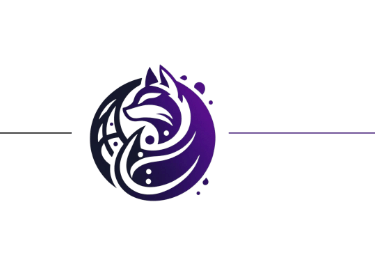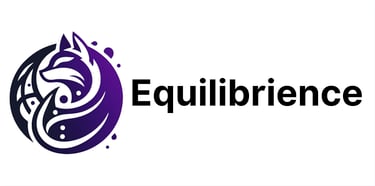From Leap of Faith to Leadership
Take a leap & launch your career! Lessons learned from a global adventure in logistics, leadership & multicultural teams. Embrace challenges & find your perfect fit!
GROWTH MINDSETMANAGING CHANGEALL THINGS WORKRESILIENCELEADERSHIPCAREER DEVELOPMENT
Aria Guzu
10/8/20246 min read


A decade ago, I applied for a multinational company specializing in logistics. It was by far the biggest organization in my birth country at that time and one of the biggest freight companies in Europe. Quite frankly, I had no clue about logistics. However, after working in multicultural environments and delivering marketing, communication, and public relations projects in several industries, it was time to move forward. The company offered abundant learning and growth opportunities, so I took a leap of faith. And it paid off.
Lesson 1: even if it’s out of reach, it doesn’t hurt to try
Growing up in Eastern Europe, I was taught to keep my head low. “Don’t take what’s not yours — and don’t be obnoxious enough to ask.”
Funny, but after moving abroad and experiencing life in the UK, Spain, Andorra, and the USA, I can testify: it’s a lie! Entrepreneurship and growth don’t fall out of the sky. We need to keep our eyes open and identify opportunities.
We also need to be flexible, resilient, and agile enough to ask when those opportunities appear. Sometimes, we need to be ready to jump even if there’s nothing yet — as time goes by, we develop a sense of what might be coming.
Applying for the job in logistics might have seemed like a stretch. Still, even the interview process taught me so much about their work environment, the industry, and — most importantly — about myself. It was more than worth it.
After an arduous screening process with several interviews, simulations, and background and reference checks, I was in. It shocked me how they wanted to understand my working style, identify how I learned, my personality, and how I coped with stress. Throughout my induction, I completed several types of personality tests and was introduced to various team dynamics models and learning approaches.
I saw many new starters come and go within the first two weeks or a month. I don’t blame them — the work environment was stressful, we were surrounded by foreigners and got ourselves involved with a variety of complex problems (taxes, laws, different regulations across EU and non-EU countries, etc.). All that, plus the actual job and inductions, learning and development packages!
I quickly found myself involved in additional societies (Toastmasters and Rotary), striving for more knowledge and growth. It was fast and crazy — but it was incredibly rewarding. Most importantly, it was tailored to me.
Lesson 2: THE perfect job or company might not be a good fit for YOU
I love companies that go the extra mile to understand their new hires. I adore managers who dive into different learning styles, multicultural differences, and preferences of devices, software, and colours. For one, it shows they care (or perhaps are efficient enough). But most importantly, they want to learn about you, because they want to know how to work with you.
It might sound funny, but it took me years to understand my working style. This meant I struggled to find the perfect job, company, and team. At some point, all these personality tests and Belbin tables came together — I see the bigger picture.
Lesson 3: there’s nothing more important than a supportive manager
Managers and leaders don’t often come in one body. But I believe that if our superior wants to understand what makes us tick, they’re on the right track to make life easier. After all, their role is to enable us, connect the dots, remove our obstacles, and allow the team to flourish.
Several years back I worked at the local government in the UK. My supervisor was a fellow millennial — tech-savvy and incredibly open-minded. Our team was rather interesting, though: multicultural and multigenerational, consisting of a variety of professionals coming from all walks of life. Our majors were as different as they could get: some specialized in Business and/or Administration, others finished Medicine or Health-related degrees. We also had Medical Engineers, Social Workers, and colleagues with a Legal and/or Finance background. You name it — we had it!
I appreciate that managing a team so odd must have been a challenge. However, my supervisor went to extensive lengths to gamify the process — she would send out odd tests and surveys, conduct interviews, and create a safe and supportive environment. At that time, we mostly thought of it as a fun way to relieve stress. However, all these tests and surveys came together, and contributed to a bigger picture of who and how we were as individuals and professionals.
Lesson 4: it’s important to know ourselves and the people around us — knowledge empowers action
Over the years I found out more about my working style, and how I learned and processed information. These tests gave insight into how I tacked my tasks and approached teamwork. First, it enabled me to better manage my workload and stress. Secondly, it informed my supervisor how to better communicate with me. Thirdly, I learned more about my colleagues and how to streamline our processes. Lastly, as time went on, we all connected the dots and learned to manage each other and our direct supervisors and reports.
Lesson 5: efficient communication is not about the information, it’s about intent
When I started my first corporate job — it was in marketing and communications — my mother (who did PR in politics) told me that it’s not about the information we’re communicating, but how we do it.
At that time, I was young and naïve — I focused on the data and tried to put my message out into the world. It was frustrating: I believed I was talking about the right things, but no one seemed to care. I did everything by the book. We splurged massive amounts of money into social media and marketing campaigns. The results were less than flattering.
The thing about efficient communication is that it has to be tailored to the audience who wants and needs to receive our message. If the message is out there, but they’re not getting it — it’s on us, not them. Mapping out our stakeholders and understanding their information needs, what channels they use, and how much of that information or how frequently they need it is key.
I used to think that a constant stream of data flowing through my channels was enough to keep everyone informed. The reality is that it makes important stakeholders numb because they don’t need that flow of data — it has to be relevant, timely, and cater to their specific needs. Focus on intent, then tailor the information.
Connecting the dots
Perhaps you wonder why I blasted several random lessons and how these roles and experiences connect. I recently started a new position here, in the United States. It’s quite an experience and I’m still learning my way around. Every day I meet new people and am exposed to situations that bring me back in time and places.
Some American practices seem incredibly innovative and supportive, while others bring me years back and I happily giggle as my British work experiences are far more advanced and I can share valuable insights.
Many years ago, when I took that leap of fate and got a job in the logistics company, people looked at me and questioned why I wanted to work there. You see, in Lithuania — or Eastern/Central Europe overall — it was seen as weird: to work with foreigners, and want to be exposed to different cultures, languages, and ways of life.
It was my first job where I had a foreigner as my supervisor. I was also the only Lithuanian in my team (even though it was a Lithuanian company!). It was not my first time working with different markets and foreign clients, though. And sure enough, it wasn’t the last!
Sometime later, I found myself as the only foreigner working in the local government in the UK. Then, I jumped straight into a pool of languages, cultures, and industries... Now I’m back to being an odd foreigner surrounded by the locals — would you believe America has a legal status, called “Alien Resident”? So, that’s what I am. An Allien. And I couldn’t be happier.
Walking into that interview at the logistics company, I launched my rocket. I would have never been where I am if I hadn’t taken a leap of faith.
Identify an opportunity. And grab it! In the end, it’s all a matter of perception.



